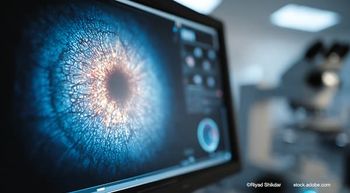
Coats' disease treated with bevacizumab
Bevacizumab could play a role in treating Coats' disease, claims a recent study.
Bevacizumab could play a role in treating Coats' disease, claims a recent study.
A retrospective review, led by Dr G. Baker Hubbard, Department of Ophthalmology, Emory University School of Medicine, Atlanta, Georgia, USA, included paediatric patients who received treatment for Coats' disease from a single surgeon between January 2001 and 31 March 2010.
Ten patients were administered intravitreal bevacizumab and ten more patients were treated with ablative therapy in the control group. Both groups were matched according to macular appearance, quadrants of subretinal fluid and quadrants of telangiectasias. The outcome measures included number of treatment sessions, time to full treatment and resolution of disease.
The results demonstrated no statistical difference in baseline characteristics between the bevacizumab and control groups. The bevacizumab eyes required more treatments over a longer period of time, compared to the control group. However, all patients treated with bevacizumab were successfully treated but two patients in the control group failed ablation treatment.
Intravitreal bevacizumab could be used as adjuvant therapy in some cases of Coats' disease, but treatment time is not reduced. Both bevaciumab and thermal ablation successfully treated Coats' disease, whereas laser therapy and cryotherapy was an unsuccessful treatment.
The abstract can be viewed in the current issue of the
Newsletter
Get the essential updates shaping the future of pharma manufacturing and compliance—subscribe today to Pharmaceutical Technology and never miss a breakthrough.




























